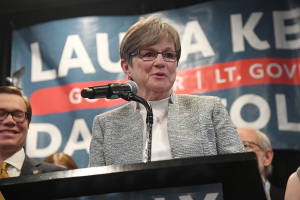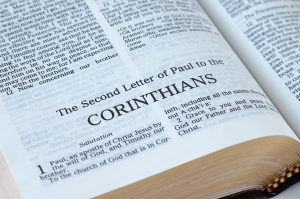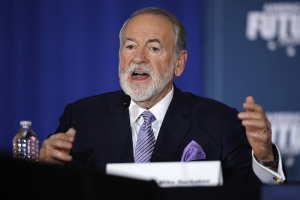FTX’s greed, corruption isn't capitalism's fault

Recently, FTX, a digital coin trading firm founded by Sam Bankman-Fried, declared bankruptcy and shocked some people in the world of investing. The company collapsed from a valuation of $32 billion to nearly zero. George Selgin, professor emeritus of economics at the University of Georgia, has written a good analysis of the fiasco.
To boil down the complexities, FTX used the funds of depositors to make loans to its subsidiary, a venture capital firm called Alameda. Alameda made poor investments and lost so much money that it couldn’t repay FTX, and both tanked. Few depositors will get their money back. Clearly, Bankman-Fried became greedy and cost those who trusted him billions of dollars.
Michael Frost might say, “What did you expect? Capitalism cranks out evil people.” This is Frost’s fifth point in his article “5 Reasons Capitalism is not Christian.” I responded to his other four points here, here, here and here. In his last point, Frost blames capitalism for destroying democracy:
“Samuel Bowles and Herbert Gintis have pointed out that, ‘a market arena of self-interested and anonymous interaction might reduce not only the need for compassion, but also the sentiment itself. In this respect, the economy produces people as well as things, and the capitalist economy produces people that are not ideally equipped with the democratic sentiments and capacities…’
It results in elites controlling the political system, governments serving the interests of private capitalists, and very limited autonomy for workers.”
Frost’s main point above ("... the capitalist economy produces people ...") is that capitalism causes people to become evil, as it did to Bankman-Fried. (Inversely, he might believe that socialism produces good people.) Keep in mind that Frost is a theologian and has written or edited 19 books of theology. Yet he attributes the cause of evil in humans to an economic system, even though he knows the doctrine of original sin, that people sin because we have a strong tendency toward evil issuing from Adam and Eve that only Christ can change.
Atheists in the Enlightenment fabricated the nonsense that people are born good and turn bad only because of oppression, with property as the greatest oppressor.
Frost should also know that opposition to democracy existed long before the advent of capitalism. Historians claim that ancient Greeks invented democracy, but only the elite landowners in Greece participated. Greeks considered prostitution a useful service and had many temples with male and female prostitutes as part of the worship, but they despised commerce as one of the worst evils of mankind. Throughout history monarchs dominated and opposed democracy.
Frost’s second point is that capitalism enriches a group of elites who bribe politicians to pass legislation, or enact regulations that favor the elite. So far there is no evidence Bankman-Fried did that, but such corruption clearly happens today. James Buchanan won the Nobel prize for stating the obvious. Businesspeople work mainly through regulatory capture for special treatment.
But does capitalism cause it?
Capitalism requires government limited to just the punishment of criminals who violate the rights to life, liberty and the property of others. Of course, the state can’t violate those rights either. The Apostle Paul wrote “… for it [government] is a servant of God to you for good. But if you do what is evil, be afraid; for it does not bear the sword for nothing; for it is a servant of God, an avenger who brings wrath on the one who practices evil. ... For because of this you also pay taxes, for rulers are servants of God, devoting themselves to this very thing.” (Romans 13:4-6)
A few theologians camp on the phrase “for it is a servant of God to you for good …” and imagine that God intended governments to do anything that anyone can imagine as contributing to the common good. But the verses that follow strictly limit the good that governments do to punishing criminals: verse six ends with “… devoting themselves to this very thing.” What “very thing?” The punishment of criminals.
Capitalism demands the government treat all citizens equally because God does, and the government is His servant. So if it gives to one group it must give the same to all. With such a limited state as described by Paul, businessmen gain nothing from bribing politicians, so politics is much less corrupt.
The U.S. was mostly capitalist from the 18th century through the early 20th century, until the election of Franklin D. Roosevelt as president. FDR struck down the requirement that the state treat all citizens the same and vastly expanded the power of the state to reward and punish different groups of citizens, especially corporations. In the decades since, Republicans and Democrats have continued to grow the power of the state, thus making it lucrative to bribe politicians.
The Federal Register of new regulations grew by 75,000 pages every year from 1970 until 2008, at which point it jumped to 100,000 pages annually. Are Americans such unruly people that we need that volume of regulations to corral us? No. Most of those regulations were written to reward large corporations for their campaign contributions by limiting competition from smaller firms. That’s one reason a hand full of corporate cartels dominate industries in the U.S.
Frost is wrong; neither capitalism nor socialism “produce people.” We inherited our evil natures from Adam and Eve. And capitalism didn’t create the corrupt political system we suffer from today, socialist policies did. We don’t enjoy capitalism today, but a form of fascism light. FDR launched it with his socialist policies and succeeding generations of politicians have perpetuated it because it enriches them too.
Roger McKinney is the author of Financial Bull Riding and God is a Capitalist: Markets from Moses to Marx.





























